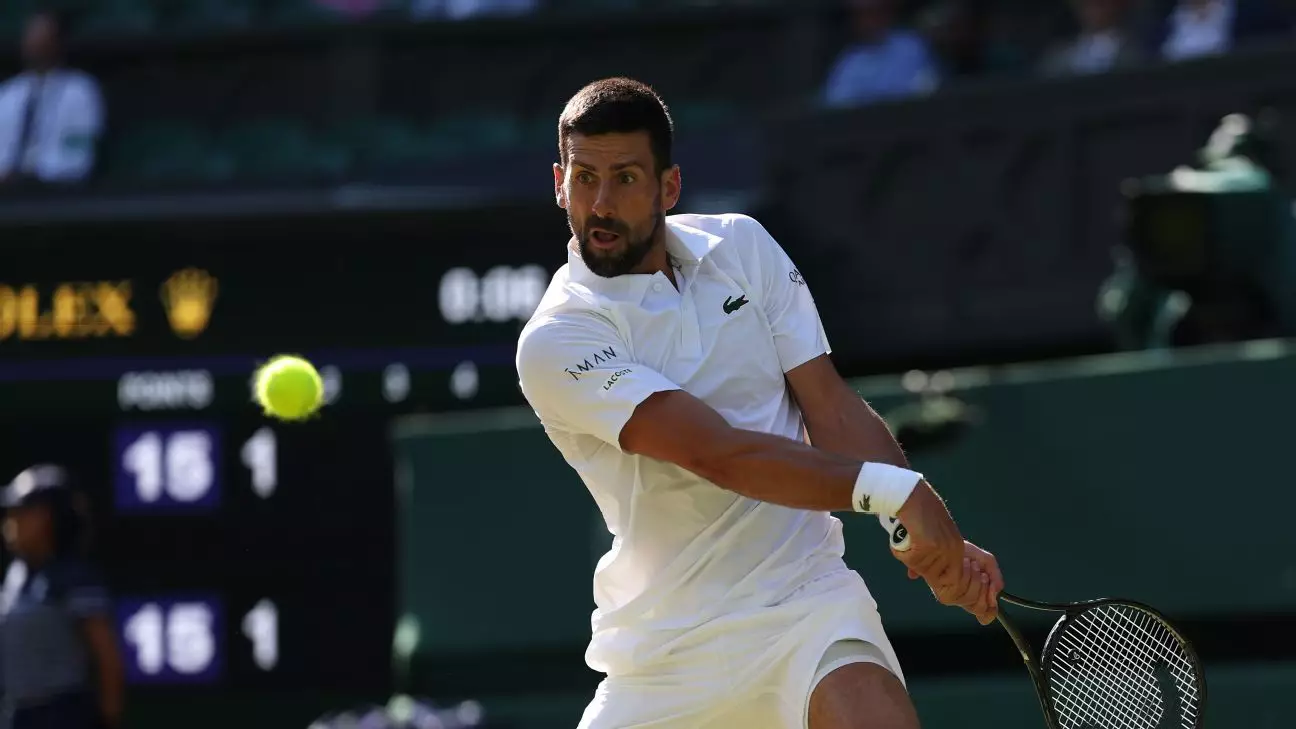In the wake of yet another Wimbledon disappointment, Novak Djokovic’s departure from the court prompts a deeper reflection on the nature of sporting greatness and the perilous path toward the end of an illustrious career. His emotional exit during this year’s tournament—marked by a heartfelt farewell wave—blurs the lines between victory and loss; it reveals the inner turmoil facing a champion who is grappling with the very idea of retirement. While Djokovic insists that he’s not ready to say goodbye, the emotional weight of losing at a tournament where he’s historically dominated underscores the unpredictable, often brutal, reality of aging in professional sports. The question that remains is whether his resilience is enough to sustain his legacy or if fatigue and physical decline will inevitably pull him away from the sport’s brightest limelight.
Uncertainty and Accepting the Unchangeable
Despite his insistence on returning to Wimbledon, Djokovic’s words reveal an undercurrent of vulnerability. His admissions of physical fatigue and his candid acknowledgment of recent struggles indicate that the physical and mental toll of maintaining a top-tier level becomes increasingly burdensome with age. It’s easy to romanticize the legend, but beneath this veneer lies a human being who faces diminishing physical resources and the relentless pressure to perform. Djokovic’s inner dialogue—oscillating between hope and resignation—is emblematic of a broader dilemma faced by aging athletes: When is the right time to step away? His belief that he can still play his best at grand slams offers a glimmer of hope, but it also masks the reality that relentless competition inevitably wears down even the most resilient.
The Myth of Infinite Longevity in Sports
The narrative surrounding Djokovic’s potential retirement is emblematic of a cultural obsession with prolonging greatness and defying age. But reality often paints a starkly different picture. Athletes like Djokovic, renowned for their strategic approach to training and mental fortitude, still find that age creeps in unnoticed—sapping strength, weakening reflexes, and diminishing agility. His recent record—surprisingly sparse in major titles after a dominant streak—serves as a stark reminder that no athlete, no matter how talented, is invincible. The relentless pace of modern tennis, coupled with the physical toll, makes sustaining peak performance a fleeting achievement rather than a permanent state. Djokovic’s situation underscores that even the greatest are vulnerable to the impermanence that time inexorably brings.
Legacy in Question—A Double-Edged Sword
While Djokovic’s achievements—holding record-equalling 24 Grand Slam titles—are unimpeachable, his diminishing dominance raises questions about the durability of sporting greatness. Does his continued pursuit of titles cement his legacy, or does it risk overextension, potentially tarnishing the myth of invincibility? The temptation to chase history at any cost can lead to mental burnout and physical deterioration, which ultimately threaten the legacy they aim to preserve. His recent struggles, such as a lack of major titles and inconsistent deep runs, challenge the narrative of eternal dominance. For a public increasingly captivated by mental health, sustainable excellence, and authentic aging, Djokovic’s narrative reflects a nuanced understanding: greatness is as much an inner journey as it is about titles.
Revisiting the Power of Purpose
In an era where new talents like Alcaraz and Sinner are rising, Djokovic’s future relevance hinges not just on his physical condition but also on his capacity to redefine his purpose. Will he cling stubbornly to the pursuit of records, or will he accept that fresh competition and personal fulfillment might lie elsewhere? The choice to continue competing should not be driven solely by the desire to emulate past glories but should also consider mental well-being, quality of life, and the broader cultural dialogue about aging and resilience. For someone who has reshaped tennis history, Djokovic’s next steps could symbolize a deeper understanding of what it means to be a champion—not just through titles, but through accepting the natural arc of human aging.
His story, complex and fraught with high achievements and hard lessons, embodies the delicate balance between ambition and acceptance—a narrative that many in society can relate to, especially as we confront our own limitations and search for meaningful fulfillment in the face of inevitable change.


Leave a Reply